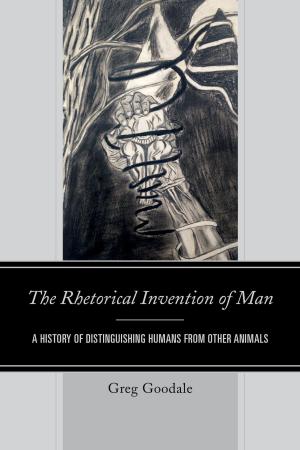An American Political Scientist in Israel
From Athens to Jerusalem
Nonfiction, Social & Cultural Studies, Political Science, International, International Relations| Author: | Paul Eidelberg | ISBN: | 9780739148921 |
| Publisher: | Lexington Books | Publication: | August 20, 2010 |
| Imprint: | Lexington Books | Language: | English |
| Author: | Paul Eidelberg |
| ISBN: | 9780739148921 |
| Publisher: | Lexington Books |
| Publication: | August 20, 2010 |
| Imprint: | Lexington Books |
| Language: | English |
An American Political Scientist in Israel recounts the author's meetings with some of Israel's political and intellectual leaders after he immigrated to Israel in 1976. His book reveals, for the first time, the flawed mentality of these elites and how this affects their foreign policy. As a political scientist and student of the America's Founding Fathers, he provides a professional critique of Israel's ideological and institutional flaws. Eidelberg also provides a detailed account of Israel's economic and technological contribution to the United States. Contrary to conventional opinion, dollar for dollar, the United States receives more from Israel than Israel receives from the United States! Finally, Eidelberg offers a remedy for Israel's woes. He first shows that although Israel, is a democracy from a sociological perspective, it is not a democracy from a political-institutional perspective. Not only does Israel lack a written Constitution with institutional checks and balances, but members of the legislature are not individually accountable to the voters in constituency elections. Operating in Israel is not representative government so much as multi-party cabinet government dominated by the prime minister. Eidelberg has therefore drafted a Constitution that empowers the people and is consistent with basic Judaic principles.
An American Political Scientist in Israel recounts the author's meetings with some of Israel's political and intellectual leaders after he immigrated to Israel in 1976. His book reveals, for the first time, the flawed mentality of these elites and how this affects their foreign policy. As a political scientist and student of the America's Founding Fathers, he provides a professional critique of Israel's ideological and institutional flaws. Eidelberg also provides a detailed account of Israel's economic and technological contribution to the United States. Contrary to conventional opinion, dollar for dollar, the United States receives more from Israel than Israel receives from the United States! Finally, Eidelberg offers a remedy for Israel's woes. He first shows that although Israel, is a democracy from a sociological perspective, it is not a democracy from a political-institutional perspective. Not only does Israel lack a written Constitution with institutional checks and balances, but members of the legislature are not individually accountable to the voters in constituency elections. Operating in Israel is not representative government so much as multi-party cabinet government dominated by the prime minister. Eidelberg has therefore drafted a Constitution that empowers the people and is consistent with basic Judaic principles.















